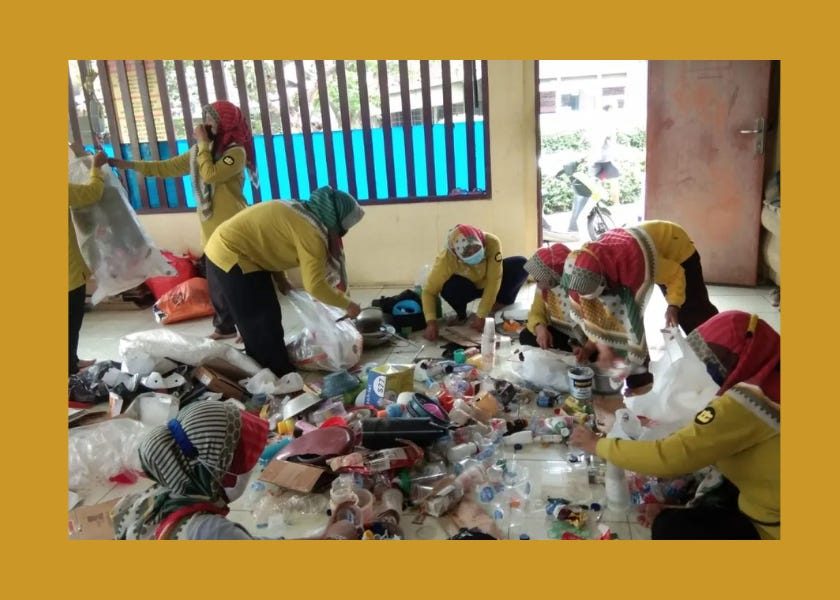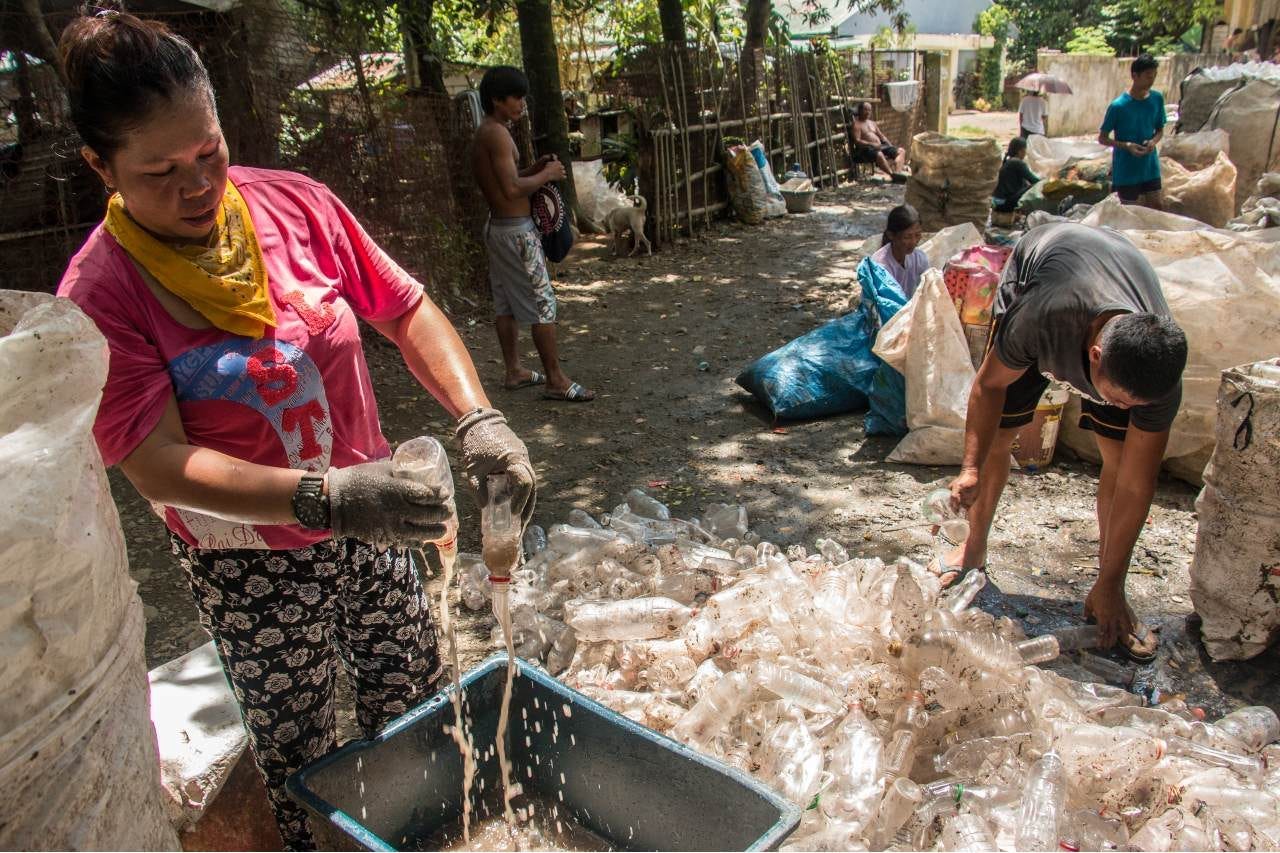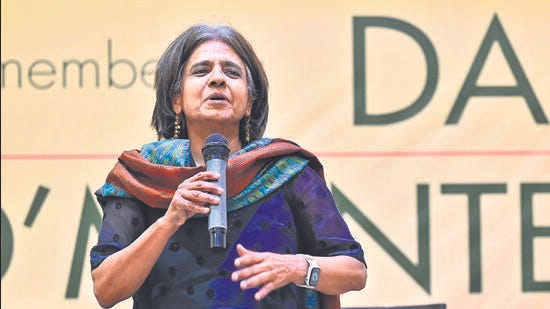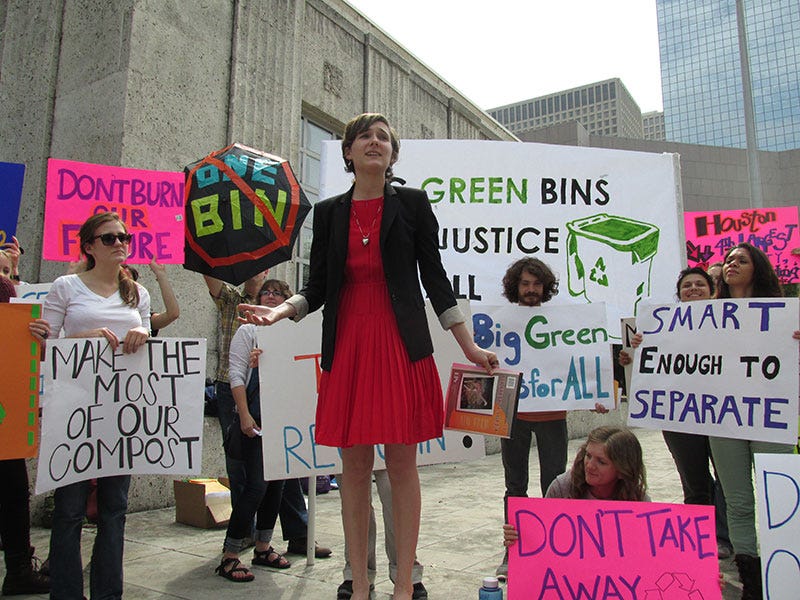Wasted potential: The gender gap in recycling system
As Southeast Asia drowns in plastic waste, women handle most of the recycling efforts—yet earn half than men, face health & safety risks, and remain invisible in the policies

In Indonesia's Gowa District, Ibu Aminah carefully weighs plastic bottles brought to her community waste bank.
Like 85% of waste bank members across the region, she's a woman from a lower-income household who has become an environmental guardian through necessity.
The small payments she receives for sorting household waste provide supplemental income for her family while keeping plastics out of the region's overflowing landfills.
"Before the waste bank, these materials would end up in our rivers or burned behind homes," she explains.
"Now we see value where others see garbage."
🏋️♀️ The true backbone of of waste management in Southeast Asia? Women.

🇰🇭 In Cambodia, traditional gender roles have placed women in charge of 55.3% of municipal solid waste generated by households.
They shoulder responsibility that extends beyond their homes into informal waste collection and recycling that powers the region's circular economy.
🇻🇳 In Vietnam, women dominate the informal waste sector, which handles 30% of the country's total waste stream.
As waste pickers, sorters, and recyclers, they contribute to up to 90% of plastics recycling, creating value from materials that would otherwise pollute.
Women in informal waste sectors effectively subsidise municipal waste management.
They collect, sort, and sell recyclables that are then reintegrated into value chains—providing an essential service at virtually no cost to governments.
The 2018 global survey "Mapping the Status of Women in the Global Waste Management Sector" confirms this pattern extends worldwide.
Women contribute massively to waste management though they remain largely invisible in society and policy discussions.
Inequalities despite the larger contributions
🇮🇩 In Indonesia, male waste workers earn nearly twice as much as their female counterparts—an average of $128.30 per month compared to $69.70 for women.
A wage gap reflects the gendered division of labor throughout the waste value chain.
"Women in informal waste sectors face particular vulnerabilities.
They are concentrated in the most labour-intensive and lowest-paying segments of waste work, such as sorting and segregating, while men dominate higher-income roles like collection and processing.
This division reflects entrenched gender norms and limits women's access to the most profitable parts of the value chain."
— FCI Report on Waste Pickers in Indonesia's Plastics Recycling Supply Chain
This pattern repeats across the region, with women typically assigned repetitive, time-consuming tasks like sorting, while men handle transport and "heavy" tasks that command higher pay.
The devaluation of women's labour persists across the globe.
🎭 Social stigma compounds hardships
Beyond economic and health challenges, women waste workers face pervasive social stigma that further marginalises them.
Female waste pickers report being isolated in public spaces like shops and restaurants, treated as untouchable because of their work.
This stigmatisation often come with gender-based disadvantages, including harassment and violence that female waste workers experience.
The isolation created by social stigma further limits women's ability to organise collectively or advocate for improved conditions.
Excluded from decision making

Despite their rich knowledge of waste systems, women remain absent from decision-making positions in the sector.
"Women bear the burden of taking responsibility of waste at the community level (especially in rural areas where there are no private collection services), but they are relegated to the lower level at the decision-making level."
—Marie Kaiser, Gendered Landscape of Waste Management in Cambodia
In Cambodia, not a single female governor oversees municipal waste services, creating policies that often fail to address the realities faced by the women at the grassroots level.
The exclusion of women from leadership positions represents both a social injustice and a missed opportunity.
Women's participation in decision-making roles in the waste sector is not just about gender equality; it is also about leveraging their unique perspectives and skills for better environmental management and sustainable development.
The representation is important for breaking stereotypes and encouraging more women to pursue careers in environmental sciences and waste management.
Communities that got each other's backs
Despite these challenges, women across Southeast Asia create pathways to change.
🇮🇩 Indonesia's waste bank movement is one great example. Community-based initiatives transform household waste management while providing economic opportunities for women previously excluded from formal employment.
👩🍼 Women are usually the first to notice deterioration of environmental conditions. They have a keen sense of civic responsibility because of he direct impact of unsanitary conditions on children and families that they see.
This connection to community wellbeing drives women to pioneer solutions that address both environmental and social needs.
🇮🇳 In Bengaluru, India, women "pourakarmikas" (formal waste collectors and street sweepers) have formed associations to advocate for better working conditions while improving waste management in their communities.
What can be done on a higher level?
With the growing waste challenges, experts emphasise that effective solutions must integrate gender perspectives into every aspect of waste management policy.
⚧ Gender-inclusive policies that address specific needs and barriers faced by women in the waste sector
🛠️ Improved working conditions including protective equipment, healthcare access, and fair wages for informal waste workers
📚 Training opportunities specifically for women in fields with significant gender disparities such as entrepreneurship, finance, and engineering
👩🔧 Formal recognition of informal waste workers' contributions, with particular attention to women's roles
👭 Representation quotas to ensure women's participation in decision-making bodies governing waste management

This 2025 International Women's Day is an opportunity to acknowledge the critical contributions of women and latch onto its theme of #AccelerateAction.
That women have always been there and it's no longer a novelty for women to make an impact.
Their knowledge, resilience, and leadership are all essential resources for addressing the region's mounting waste crisis—if only we give them the recognition, protection, and opportunities they deserve.
We hope for a future where women don't have to choose between her health and feeding her family. Where a woman sorting plastics in Vietnam earns the same as the man who drives the collection truck. Where the expertise of those who handle our discards daily shapes the policies that govern waste management.
Not because it's progressive or politically expedient—but because it's the only sensible path forward.
🌿 The hands that sort our waste have always held solutions; it's time we stopped wasting their potential.
Happy International Women's Day.
💚 With lots of love and big hopes for a waste-free future,
—SEArcularity
If you think this was a valuable read, you might want to check out our Women’s Month Spotlight! 💭



